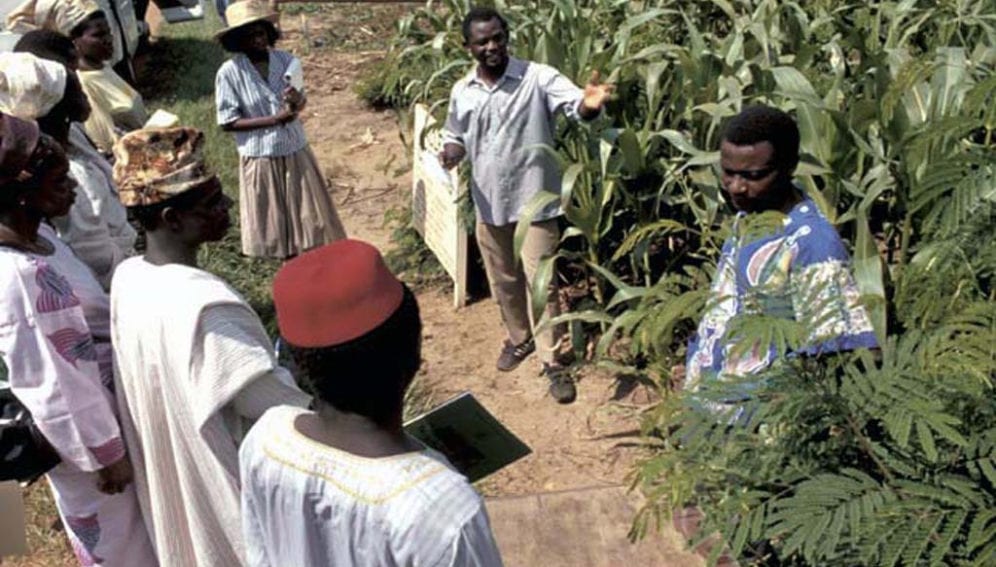Send to a friend
The details you provide on this page will not be used to send unsolicited email, and will not be sold to a 3rd party. See privacy policy.
[CAIRO] Agricultural experts have called for more holistic agricultural innovation to achieve global food security.
Their report, a science and policy 'comment' published by the International Center for Agricultural Research in the Dry Areas (ICARDA), highlights three obstacles preventing agriculture from "taking food security to the next level": ineffective thematic focuses that fail to address individual countries' needs; 'short-term' funding approaches; and a shortage of practical policy options to help countries' agricultural sectors respond to chronic food insecurity and nutrition deficiency.
“Reaching the farmers is our biggest problem.”
Fawzi Karajeh
Its authors criticise the current focus on short-term projects that "limit the potential for interdisciplinary work and [a real-system] approach" and they suggest working toward more inter-organisational projects.
"We need to rethink the current vertical approaches that focus on a small set of commodities and [instead] evolve an agro-ecosystem that addresses a complex set of problems and shapes farming systems based on the need of the rural — not the research — community agenda," says Mahmoud Solh, director-general of ICARDA, and one of the three authors of the comment.
Solh says that some smallholder farmers may need to replace their traditional subsistence agriculture with a package of approaches that include growing high-value crops and so generating more income to purchase additional food, healthcare and education.
"After years of working with national partners in different countries to develop technologies and varieties that are high in productivity and drought tolerance, we witnessed the result of this holistic approach," says Solh.
The report highlights examples of more integrated approaches to agriculture, for example alley-cropping fodder shrubs into barley-based mixed livestock systems in Morocco and Tunisia. By growing fodder shrubs such as salt-bush and spineless cacti between strips of barley, farmers can grow reliable livestock fodder and reduce erosion and rainfall runoff, so increasing soil moisture.
Fawzi Karajeh, principal scientist for ICARDA's work on water resources and irrigation management says: "Reaching the farmers is our biggest problem. The adaption rates from the farmers' side toward the use of enhanced agriculture methodologies are so limited".
He tells SciDev.Net that another challenge is linking scientific research to applications on the ground.
"We work closely with the farmers and through approaching them personally we manage to reduce the amount of wasted water by 30 per cent and enhance the productivity of the land by 15 per cent," Karajeh says.
"Science research should start with the farmers and end with the farmers. Scientists have to go out from their research stations and labs and interact with the farmers and involve them at an early stage of technology development," agrees Solh.
The comment, 'Innovative agriculture for food security: be smart, be systematic', was published in April.














